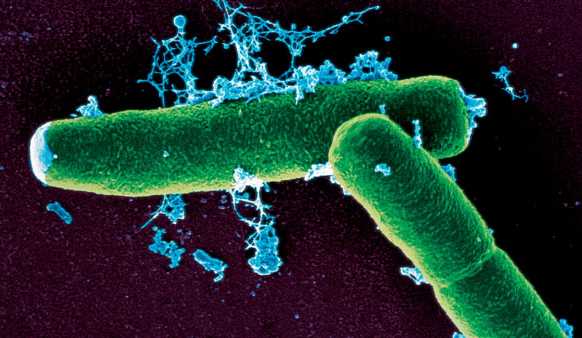Team:Washington/Gram Positive
From 2010.igem.org
(→Anthrax) |
|||
| Line 38: | Line 38: | ||
CapD is naturally a transpeptidase, favoring reactions with amino acids to perform its task, cleaving PDGA. However, CapD would be invaluable as a hydrolase, reacting with water to cleave PDGA, because of the high levels of water in the human body. If a mutant CapD could be engineered as an extremely efficient hydrolase, it is theorized that a single dose of concentrated CapD into the blood stream would easily decimate anthrax populations, nullifying its lethal properties. | CapD is naturally a transpeptidase, favoring reactions with amino acids to perform its task, cleaving PDGA. However, CapD would be invaluable as a hydrolase, reacting with water to cleave PDGA, because of the high levels of water in the human body. If a mutant CapD could be engineered as an extremely efficient hydrolase, it is theorized that a single dose of concentrated CapD into the blood stream would easily decimate anthrax populations, nullifying its lethal properties. | ||
| - | |||
| - | |||
| - | |||
| - | |||
| - | |||
| - | |||
| - | |||
| - | |||
| - | |||
| - | |||
| - | |||
| - | |||
| - | |||
| - | |||
| - | |||
| - | |||
| - | |||
| - | |||
| - | |||
| - | |||
| - | |||
| - | |||
| - | |||
| - | |||
| - | |||
| - | |||
| - | |||
<!---------------------------------------PAGE CONTENT GOES ABOVE THIS----------------------------------------> | <!---------------------------------------PAGE CONTENT GOES ABOVE THIS----------------------------------------> | ||
Revision as of 21:50, 16 September 2010
Anthrax
Anthrax is a lethal disease caused by the bacterium Bacillus anthracis which can spread by ingestion, inhalation, or cutaneous lesion contact with spores. Spores of Bacillus anthracis are extremely resilient, remaining potent even after enduring the harshest climates for multiple centuries. This disease is not contagious, cannot be transferred from an infected organism, though bacterial spores can be transported in a multitude of ways and will infect potential victims.
CapD
Anthrax creates a poly-γ-D-glutamate (PDGA) capsule which prevents the immune system from recognizing it as a pathogen and performing phagocytosis to eliminate the threat. Naturally, anthrax produces CapD which cleaves and anchors the capsule to its peptidoglycan, the outer coat of the cell membrane; however, research shows that an overexpression of CapD will cleave the capsule, removing immunity to phagocytosis.
Goal
CapD is naturally a transpeptidase, favoring reactions with amino acids to perform its task, cleaving PDGA. However, CapD would be invaluable as a hydrolase, reacting with water to cleave PDGA, because of the high levels of water in the human body. If a mutant CapD could be engineered as an extremely efficient hydrolase, it is theorized that a single dose of concentrated CapD into the blood stream would easily decimate anthrax populations, nullifying its lethal properties.
 "
"



